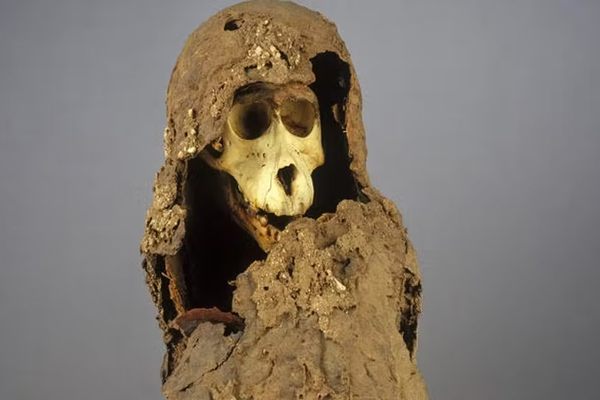Wolverines Are Now Being Trained to Find Avalanche Survivors
This sharp-clawed scavenger might be the key to future search and rescue efforts.

A wolverine, a native species notorious for its relentless hunting and scavenging instincts. (Photo: Per Harald Olsen/NTNU/CC BY 2.0)
People have recruited animals for all kinds of tasks throughout time—huskies have pulled sleds, birds carried messages, horses and donkeys brought humans and their wares to faraway places. Now, a new animal is getting ready to take the limelight: the notoriously vicious wolverine, which may become the next expert animal for finding avalanche survivors.
Wolverines are about the size of a small dog, and are powerful predators and scavengers that move deftly in the snow. Mike Miller at Alaska Wildlife Conservation Center saw potential in the furry, sharp-toothed mammals, and recently made the proposal to use the wolverine to help others. They can be trained to sniff out humans specifically, and can learn to do so in as little as a week; the program’s founders say they’re actually smarter and easier to train than dogs, which are used currently to find avalanche survivors. “Anything you can train a dog to do, you can train a wolverine to do, five times quicker,” Miller told Outside.
Six people have died in Alaska due to avalanches this past year, and avalanches caused numerous deaths in the U.S. between 1950 and 2013. One of the challenges of saving people caught beneath the waves of heavy snow is finding them. Wolverines have evolved to have high endurance for physical activity and smell efficiently in the snow, and they naturally look for carrion beneath avalanches.
While many are wary of using a sharp-toothed predator/scavenger to help injured people out of the snow, one of the project’s founders, Steve Kroschel, is confident they can be gentle. He’s kept and trained wolverines in captivity for decades, playing with the sharp-clawed beasts like they were kittens. “It will bite me on the neck and drag me around, and do all that play behavior like it’s killing its prey. And in all these years, I’ve never been sent to the emergency room,” Kroschel told CBC, though the wolverines will be supervised by a human when on rescue missions.
To make wolverines gentle enough to help humans, they have to imprint on a human just after birth. One of the challenges now faced with these wolverine trainers is breeding them, which has been difficult to do in captivity. Luckily, two wolverines, Kayla and Kasper will be making a go of it soon; it might only be a matter of time before wolverines are synonymous with search and rescue.

















Follow us on Twitter to get the latest on the world's hidden wonders.
Like us on Facebook to get the latest on the world's hidden wonders.
Follow us on Twitter Like us on Facebook